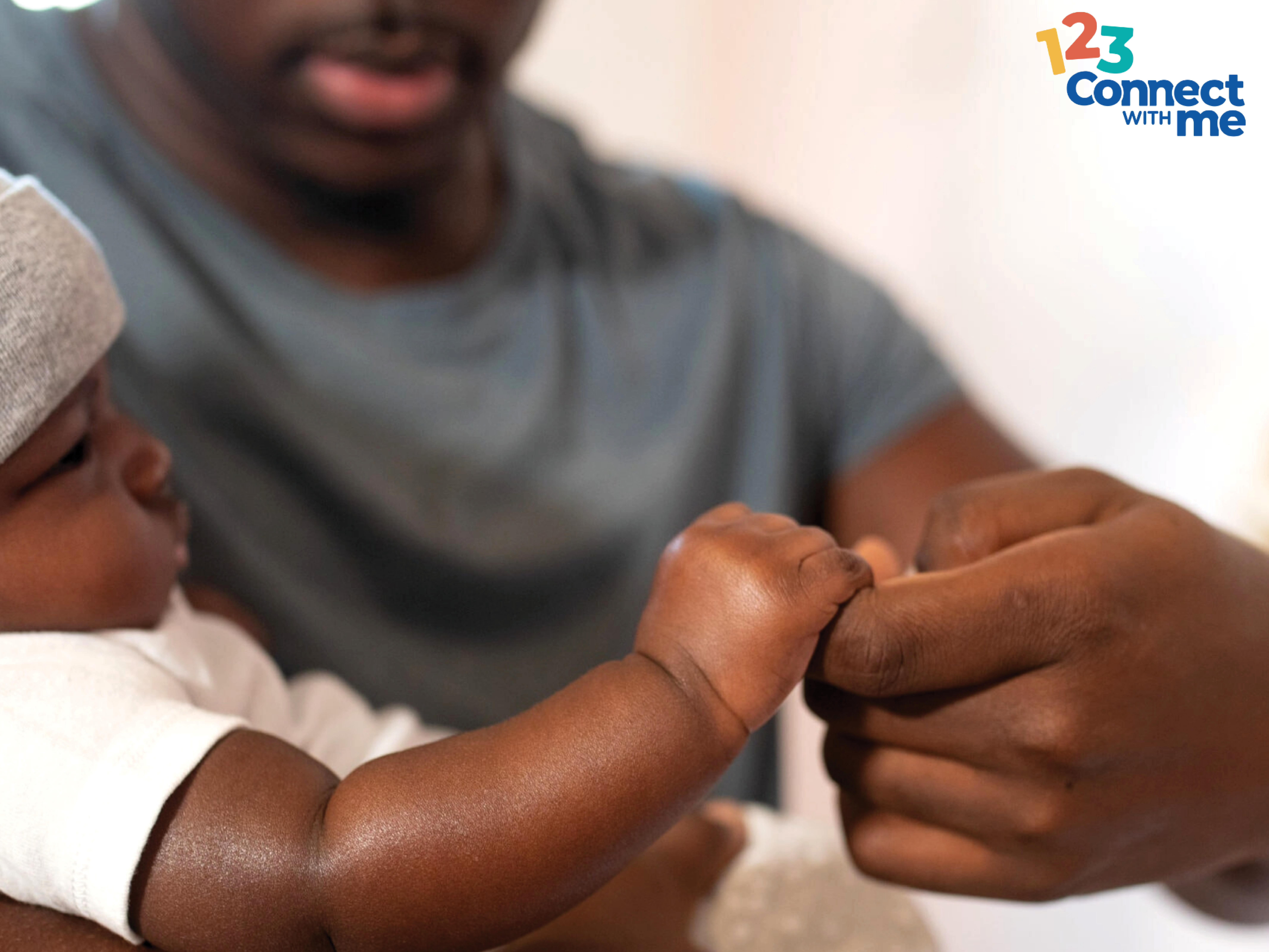
Touch is an essential human need. Positive, nurturing touch, such as a hug or a snuggle, connects us to others and helps us to feel accepted and loved. When touch is nurturing, in other words, loving, kind, and wanted by the child, touch plays a key role in healthy child development.
Nurturing physical touch promotes development of young children’s physiological systems involved in regulating emotions and stress responses. Physical touch such as holding and rocking are the most effective ways to calm and soothe a distressed baby; repeated experiences of being soothed when distressed attunes the stress-response system and prepares children’s ability to self-regulate and to identify how to calm their strong feelings, like when they are upset.
Children who have this ability to calm their strong feelings are better able to understand that other people have feelings and thoughts, which can lead to them having more positive relationships, such playing with friends. In this way, nurturing physical touch supports children’s prosocial development (being able to be kind, caring, and helpful). For example, one study found that children whose mothers more often hugged them when they were upset were more concerned and caring about others (Narvaez et al. 2019). Also, children whose mothers were observed providing more positive touch when they were 18 months old were more likely to demonstrate prosocial behavior at 24 and 30 months old, suggesting that nurturing touch helps children develop important relationship skills.
So why would these positive nurturing touches support the development of children’s brains and social behaviors? One reason is that these types of touches actually wire the brain for social success. A recent study found maternal touch during play was associated with greater connectivity among regions of the brain associated with social behavior among 5-year-olds. These findings suggest that gentle, nurturing touch, which is sensed by nerve endings beneath the skin, stimulate areas of the brain associated with social and emotional development – the “social brain” - and strengthens those neural connections. Though these studies were with moms, dad also provide these benefits with positive and nurturing touches.
In addition to effects on brain development, nurturing touch elicits release of the hormone oxytocin, which is associated with a calm mood and affiliative behavior. According to research at Stanford University, infant massage can improve babies’ sleep, reduce fussiness, increase relaxation for mothers and infants, improve lactation for mothers, and reduce postpartum depression in mothers.
The next time you hug or cuddle your children, think of all the wonderful ways their brains are benefiting. You will also experience some of these benefits too!
Resources:
Brauer, J., Xiao, Y., Poulain, T., Friederici, A.D., & Schirmer, A. (2016). Frequency of maternal touch predicts resting activity and connectivity of the developing social brain. Cerebral Cortex, 26, 3544-3552. doi:10.1093/cercor/bhw137
Narvaez, D., Wang, L., Cheng, A., Gleason, T.R., Woodbury, R., Kurth, A., & Lefever, J.B. (2019). The importance of early life touch for psychosocial and moral development. Reflexão e Crítica 32:16
https://prc.springeropen.com/track/pdf/10.1186/s41155-019-0129-0.pdf
Benefits of Touch for Babies, Parents:
https://med.stanford.edu/news/all-news/2013/09/the-benefits-of-touch-for-babies-parents.html
https://gooeybrains.com/2016/11/15/sensory-development-importance-touch/
Parent’s Touch Transforms a Baby’s Brain:
https://www.huffpost.com/entry/parents-touch-child-brain_n_579ae4c0e4b08a8e8b5d83cd
Importance of Touch for Babies and Beyond:
https://www.greenchildmagazine.com/importance-of-touch-for-babies/
Loving Touch is Key to Healthy Brain Development:
https://www.psychologytoday.com/us/blog/the-athletes-way/201304/the-neuroscience-calming-baby
The Importance of Touch in Early Childhood:
https://rainforestlearningcentre.ca/importance-human-touch-early-childhood-caregivers/

